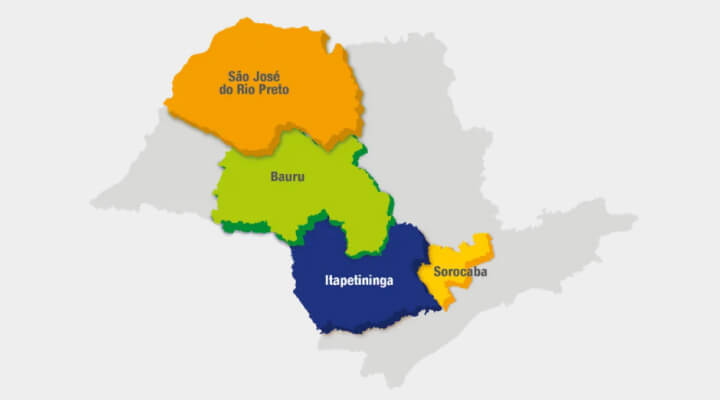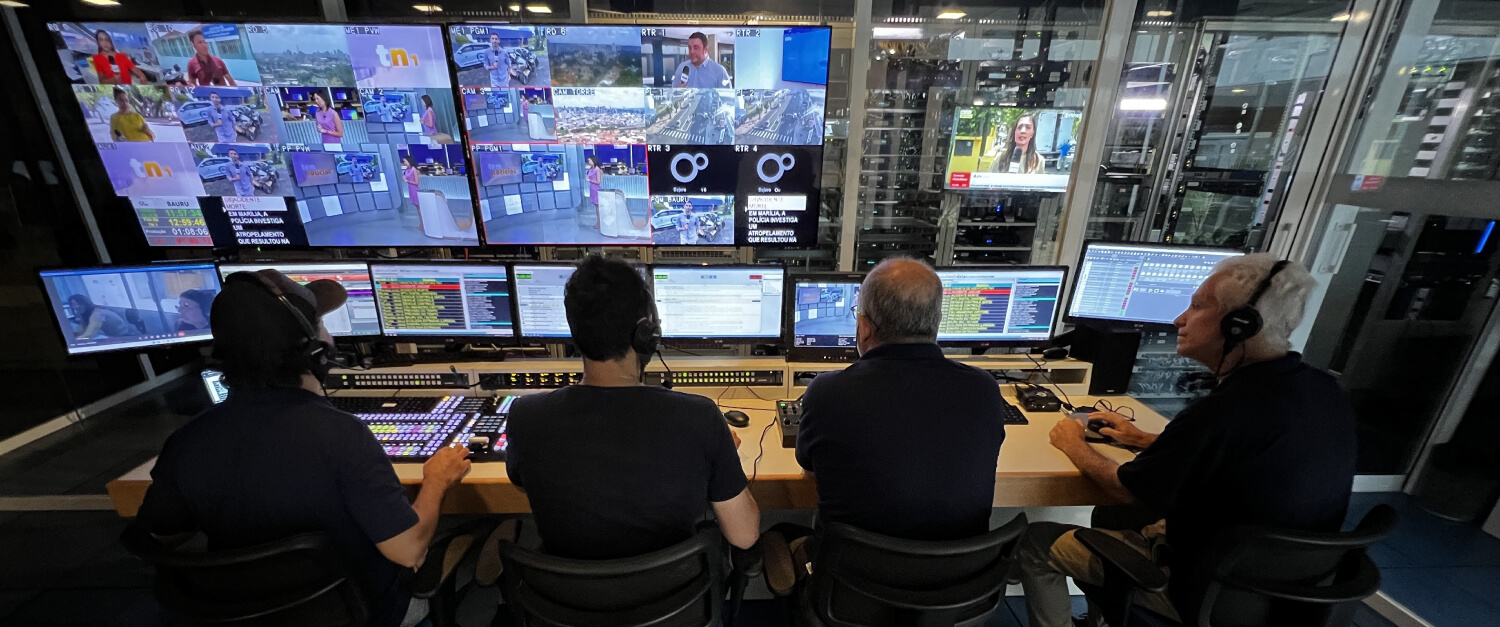How Haivision Makito X4 Video Encoders and Decoders Helped TV TEM Transform Remote Production Workflows
TV TEM, a TV Globo affiliate in São Paulo downtown, is a prominent broadcaster with four main channels, covering 318 municipalities and reaching over 9.5 million people daily. As part of the second-largest commercial television network globally, TV TEM shoulders the responsibility of providing quality information to a vast audience, emphasizing regional journalism and community engagement.
Ewerton Maciel
Chief Technology Officer, TV TEM


In order to scale its regional broadcasts while reducing its production costs, TV TEM began its transition to a remote production model that utilized the public internet instead of fiber-dependent workflows. Many of the costs of production were associated with operating 3 remote studios along with its main production studio in Sorocaba. As TV TEM’s Chief Technology Officer, Ewerton Maciel explained, these issues eventually prompted the television network to revamp its approach to regional journalism.
One of TV TEM’s strengths is its immersion in the very region in which it reports its news. The project aimed to maintain its role as a local broadcasting leader while seeking a more cost-effective solution than the expensive fiber internet TV TEM relied on. This began with an experiment where TV TEM tested various alternatives that could accommodate transmission over the public internet, focusing on solutions that could help their transition to a remote production model that employed the public internet rather than fiber while maintaining very low latency.
“We tested numerous broadcast solutions on premise and in the cloud. At the end of the day, we arrived at a design where we expanded our local presence and increased operational capacity,” Ewerton described. “To put this into practice, TV TEM counted on specialized partners, and Haivision was crucial to achieve our goals.”
TV TEM tested multiple solutions, including cloud-based options and low-latency video encoders. Among all solutions tested, Haivision’s Makito X4 emerged as the best choice, proving high-quality, reliable, and low-latency broadcast transmissions across different ISPs. The Makito X4s also allowed for bidirectional communication between remote studios and the main facility.
TV TEM’s workflow now employs Makito X4 video encoders and decoders at each of its three remote production studios. In addition, the production facility has an MB21 Rack Chassis with Makito X4 video encoders and decoders – to send and receive streams from each remote studio.
TV TEM aims for a typical latency down to 250 milliseconds end-to-end (depending on the internet service provider), including a buffer for packet loss recovery. This low latency is made possible with the Makito X4 video encoders and decoders.
“Latency is a critical factor in remote production, posing a challenge for us as the content is running locally,” said Ewerton. “Every millisecond is crucial, especially for the presenter delivering the news, making it a significant aspect that required careful consideration. This is why we chose Haivision.”
Haivision’s solutions offered a better user experience, too. The brand’s established reputation and commitment to ongoing innovation were crucial factors. The Makito’s ease of use and proven video and audio quality further solidified the decision:
“The Makito’s user interface is straightforward, making it easy for our engineers to navigate. Another factor is our confidence in the brand and its continued implementation of new features. It’s a dependable brand that we trust,” Ewerton emphasized.

Haivision’s Makito X4 video encoders and decoders helped to successfully transform TV TEM’s live broadcast workflow. The low-latency, bidirectional streams over public internet networks allowed true remote studio and production center configuration.
“Haivision’s Makito X4 video encoders have enabled us to establish the new live broadcast workflow with a true remote studio and production center configuration; from the main site, we control 4 different news broadcasts, each one with their own set of feeds. For example, camera feeds, live news feeds, and graphics are transmitted to studio screens. Those bi-directional streams flow over public internet networks with very low latency and redundancy,” Ewerton said.
This efficient setup enabled control of four different news broadcasts from the main site, improving talent distribution and saving significant investments in remote facilities.
“We were able to implement this reliable connection with the studio because we changed the entire TV equipment setup, resulting in significant cost savings. While Haivison was not our only investment, it played a crucial role in enabling this transformation,” Ewerton shares. “Without the Makito X4 encoders and decoders, we wouldn’t have been able to incorporate hitless switching, low latency, and high-quality video, which are essential for our project involving graphical cameras and video switchers. In essence, your product served as the foundation for the entire project.”
The results include cost savings, improved workflow efficiency, optimal talent distribution, and, most importantly, a superior final product. TV TEM takes pride in the successful implementation of this project, which offset infrastructure expenses while ensuring a robust connection between facilities.